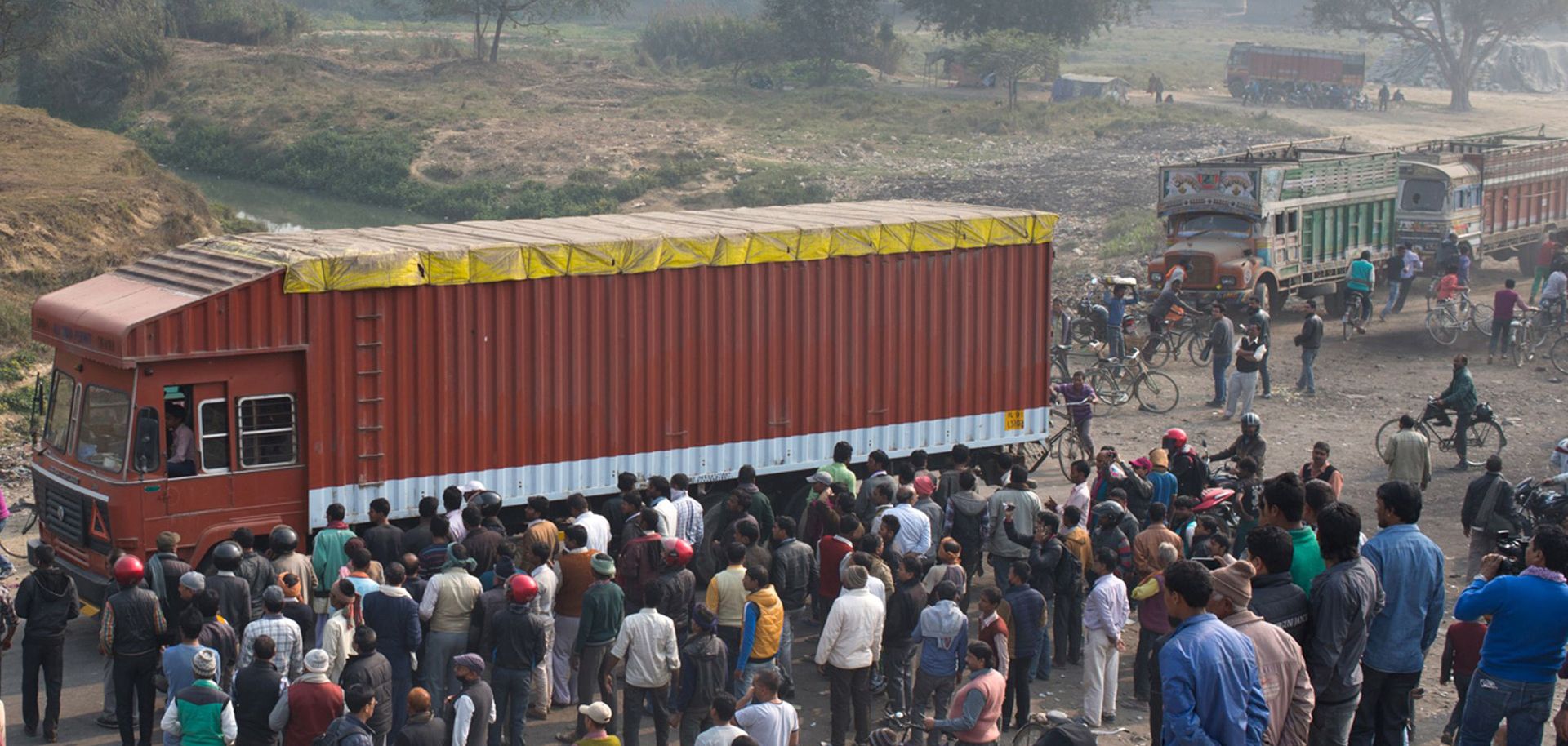ASSESSMENTS
Why Nepal Cannot Afford to Alienate India
Feb 15, 2016 | 09:15 GMT

(MANISH POUDEL/AFP/Getty Images)
Summary
For four months, the India-Nepal border was under a blockade that reduced the import of key goods to the landlocked nation to a trickle. That blockade ended Feb. 5 but the conditions that produced it remain. The restriction barring trade into Nepal was the work of the country's three-party United Democratic Madhesi Front, which is against the newly adopted Nepalese constitution. Starting in late September, the border shutdown limited the transport of fuel, medicine and other essential goods.
The constitution in question — deliberated over for nearly a decade following the Nepalese civil war — mandates carving the former Hindu kingdom into several federal provinces. But the Madhesi ethnic group fears that splitting the Terai lowlands, located along the Indian border, where its members primarily live, will marginalize it relative to the upper-caste groups that have historically dominated Nepalese politics. This is not just a domestic issue: Some in Nepal believe India had a hand in the blockade as well, and not without reason. India is looking to maintain its influence in Nepalese politics through the Madhesi, and Nepal, for its part, has trouble escaping the influence of a country it so heavily depends on for trade.
Subscribe Now
SubscribeAlready have an account?
